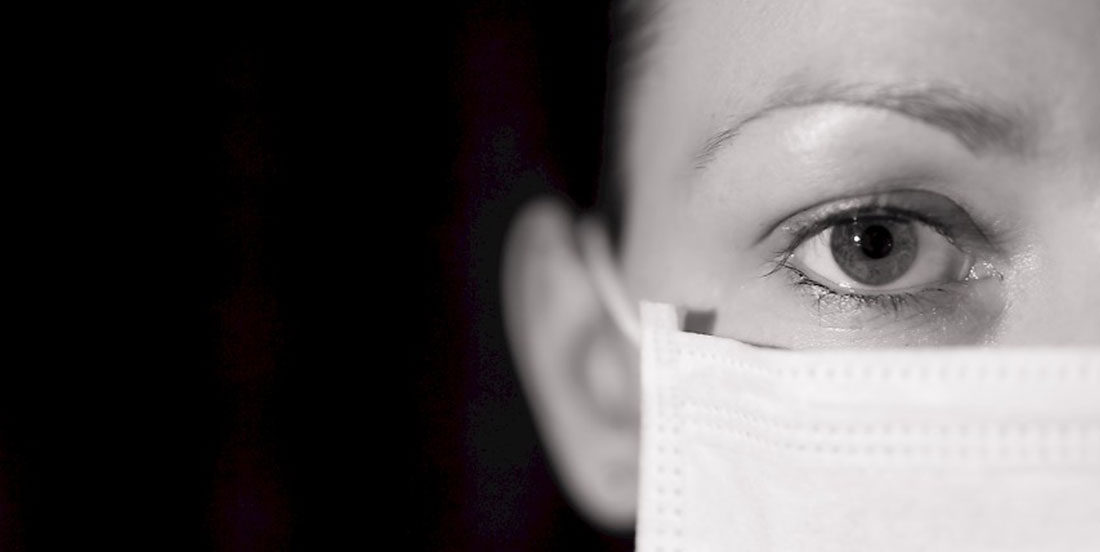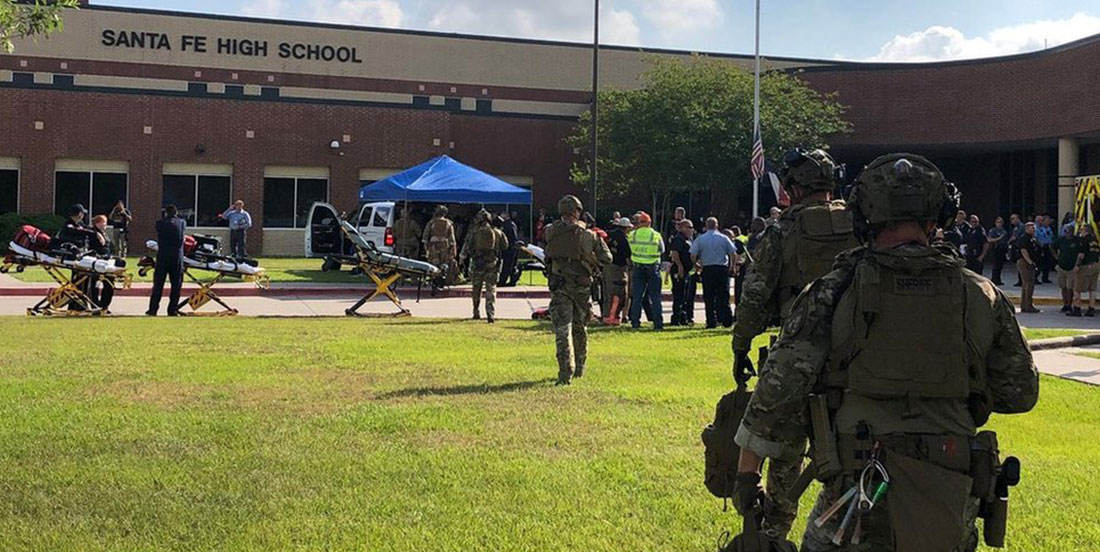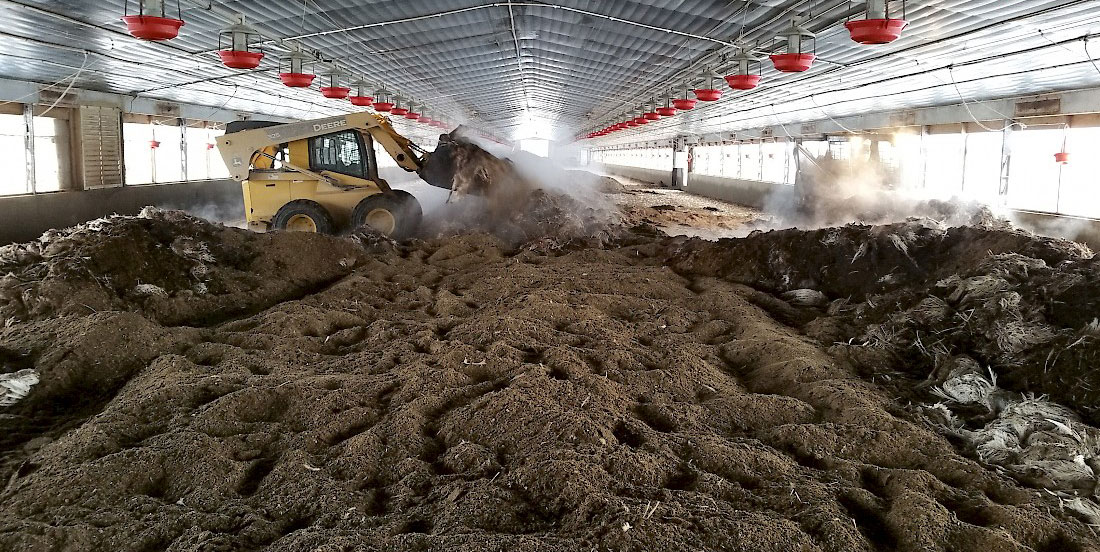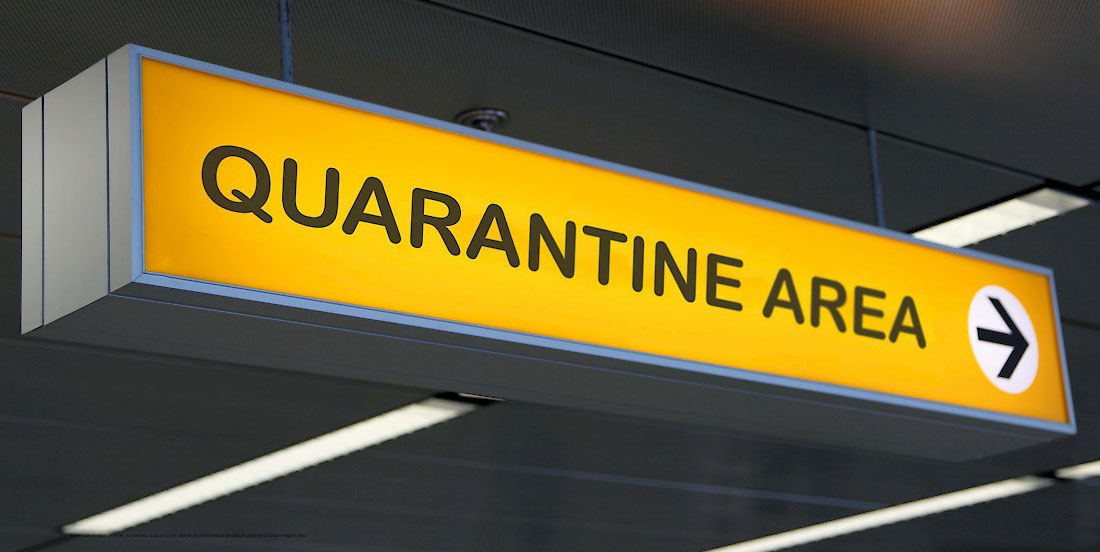Most recently published

Application of the Cynefin Framework to COVID-19 Pandemic
Judy Kruger and Romeo Lavarias
February 23, 2022
Since the spring of 2020, variables such as mistrust of government leaders, anti-maskers, and economic concerns complicated COVID-19 community response. The Cynefin framework is a sensemaking theory in the social sciences to create a framework for emergency managers in large-scale events.

Future-Proofing Infrastructure Supports Community Resilience
Ryan Colker
February 16, 2022
With communities around the globe feeling the effects of climate change, society must continue to prioritize initiatives that address its causes and impacts. For example, in mid-December 2021, 61 tornadoes formed in the central U.S. when such intense events are unusual, and Texas and Oklahoma saw a winter storm and

Essentials of a School-Based Crisis Response Plan
Mary Schoenfeldt
February 9, 2022
School crisis response plans come in a variety of formats. Although the structure may vary, the content must include the essentials for the plan to be usable and effective. A basic school-based crisis response plan has seven key elements: organizing structure, communications system, accountability system, parent/student reunification, alternative location,

Predictable Surge: A Pilot in Providence
Sara Kelly
January 26, 2022
Collaboration between public entities and private companies is essential to prepare for disasters. However, current partnerships can be formal and cumbersome to the point of detriment, or impromptu and do little to achieve their goals. This unmet need to find appropriate partnership mechanisms could be addressed by the Harvard National

The Evolving Status of Emergency Management Organizations
Kyle R. Overly
January 19, 2022
The proliferation of climate change, political strife, and general societal divisiveness is changing the nature of the work of emergency managers. The (ongoing) COVID-19 global pandemic, devastating hurricane and wildfire seasons, tenuous political situations, and broad unrest impact local communities in significant ways. Emergency managers are those who officials trust

Preparing the U.S. for an Outbreak of African Swine Fever
Gary Flory
January 12, 2022
Article Out Loud Responding to outbreaks of transboundary animal diseases is just one of the many challenges emergency planners and responders in rural localities face. Unfortunately, the infrequent nature of these events makes it easy to put off the planning, training, and research needed to fully prepare for animal disease

Transportation Security in a Holistic Homeland Security Enterprise
Daniel Rector
December 22, 2021
Transportation security is the act of ensuring the protection and continued functioning of mobility systems for both people and commerce. It includes air, maritime, and all forms of surface transport. Transportation security is an enormous undertaking involving all government levels, the private sector, volunteer organizations, and the public. These organizations

Domestic Preparedness in a Post-COVID-19 World
Nathan DiPillo
December 8, 2021
Traditional definitions of domestic preparedness have been influenced by the Cold War and international terrorism. As the 20-year milestone of the 9/11 attack on the United States passed, domestic terrorism also has made its mark on the interpretation of domestic preparedness. It is time for a fresh look, considering pandemics,

Resilience After 2021: Unfinished Business & Future Agenda
Robert McCreight
December 1, 2021
In 2021, many questions have been raised about resilience. Is more known about resilience and have more leverage tools been retained to establish resilience at will than a decade ago? What ideas and notions were expected 10 years ago in energizing resilience tasks, activities, and operations? Has the leverage needed

The Dangers of Not Protecting the “3Ps” During Events
Kole (KC) Campbell
November 24, 2021
On 5 November 2021, an apparent crowd crush at the Astroworld music festival in Houston, Texas resulted in ten deaths and untold injuries. While the criminal investigation is in its early stages at the time of this article, the music festival undoubtably represents some failures of safety and security planning

Cassandra’s Curse: Disasters Revisited
Rodney Andreasen
November 17, 2021
The study of Greek mythology can provide examples of failure to heed the call of emergency management specialists and experts. The story of Cassandra is an illustration of this warning. To win her favor, the Greek god Apollo gave her power to predict the future. However, once she received the

Another Opportunity to Prepare for Quarantines
Robert C. Hutchinson
November 10, 2021
An article published in 2013 discussed the considerable challenges of quarantine order implementation and enforcement during a future pandemic or other serious threats to public health. That discussion was after the emergence of severe acute respiratory syndrome (SARS) and Middle East respiratory syndrome (MERS), but before the re-emergence of the

A New Model for Proactive Prevention
Rick Shaw
March 2, 2022
Article Out Loud Shootings, acts of violence, crimes, abuse, suicides, overdoses, and other incidents and tragedies are increasing nationwide. Cities across the nation saw a surge of homicides in 2020 and many cities were at or near record levels for homicides in 2021. Cities also saw spikes in 2020 and

Application of the Cynefin Framework to COVID-19 Pandemic
Judy Kruger and Romeo Lavarias
February 23, 2022
Since the spring of 2020, variables such as mistrust of government leaders, anti-maskers, and economic concerns complicated COVID-19 community response. The Cynefin framework is a sensemaking theory in the social sciences to create a framework for emergency managers in large-scale events.

Future-Proofing Infrastructure Supports Community Resilience
Ryan Colker
February 16, 2022
With communities around the globe feeling the effects of climate change, society must continue to prioritize initiatives that address its causes and impacts. For example, in mid-December 2021, 61 tornadoes formed in the central U.S. when such intense events are unusual, and Texas and Oklahoma saw a winter storm and

Essentials of a School-Based Crisis Response Plan
Mary Schoenfeldt
February 9, 2022
School crisis response plans come in a variety of formats. Although the structure may vary, the content must include the essentials for the plan to be usable and effective. A basic school-based crisis response plan has seven key elements: organizing structure, communications system, accountability system, parent/student reunification, alternative location,

Predictable Surge: A Pilot in Providence
Sara Kelly
January 26, 2022
Collaboration between public entities and private companies is essential to prepare for disasters. However, current partnerships can be formal and cumbersome to the point of detriment, or impromptu and do little to achieve their goals. This unmet need to find appropriate partnership mechanisms could be addressed by the Harvard National

The Evolving Status of Emergency Management Organizations
Kyle R. Overly
January 19, 2022
The proliferation of climate change, political strife, and general societal divisiveness is changing the nature of the work of emergency managers. The (ongoing) COVID-19 global pandemic, devastating hurricane and wildfire seasons, tenuous political situations, and broad unrest impact local communities in significant ways. Emergency managers are those who officials trust

Preparing the U.S. for an Outbreak of African Swine Fever
Gary Flory
January 12, 2022
Article Out Loud Responding to outbreaks of transboundary animal diseases is just one of the many challenges emergency planners and responders in rural localities face. Unfortunately, the infrequent nature of these events makes it easy to put off the planning, training, and research needed to fully prepare for animal disease

Transportation Security in a Holistic Homeland Security Enterprise
Daniel Rector
December 22, 2021
Transportation security is the act of ensuring the protection and continued functioning of mobility systems for both people and commerce. It includes air, maritime, and all forms of surface transport. Transportation security is an enormous undertaking involving all government levels, the private sector, volunteer organizations, and the public. These organizations

Domestic Preparedness in a Post-COVID-19 World
Nathan DiPillo
December 8, 2021
Traditional definitions of domestic preparedness have been influenced by the Cold War and international terrorism. As the 20-year milestone of the 9/11 attack on the United States passed, domestic terrorism also has made its mark on the interpretation of domestic preparedness. It is time for a fresh look, considering pandemics,

Resilience After 2021: Unfinished Business & Future Agenda
Robert McCreight
December 1, 2021
In 2021, many questions have been raised about resilience. Is more known about resilience and have more leverage tools been retained to establish resilience at will than a decade ago? What ideas and notions were expected 10 years ago in energizing resilience tasks, activities, and operations? Has the leverage needed

The Dangers of Not Protecting the “3Ps” During Events
Kole (KC) Campbell
November 24, 2021
On 5 November 2021, an apparent crowd crush at the Astroworld music festival in Houston, Texas resulted in ten deaths and untold injuries. While the criminal investigation is in its early stages at the time of this article, the music festival undoubtably represents some failures of safety and security planning

Cassandra’s Curse: Disasters Revisited
Rodney Andreasen
November 17, 2021
The study of Greek mythology can provide examples of failure to heed the call of emergency management specialists and experts. The story of Cassandra is an illustration of this warning. To win her favor, the Greek god Apollo gave her power to predict the future. However, once she received the
The Future of Emergency Management: Managing Scarcity
Robert J. (Bob) Roller
October 20, 2021
The increasing frequency and severity of natural disasters coupled with the reemergence of military threats from peer and near-peer adversaries overseas will greatly reduce the ability of emergency managers to meet the needs of disaster survivors.
It Is Time to Adopt & Implement Resilient Building Codes
Dominic Sims, Pete Gaynor and Craig Fugate
October 20, 2021
As a result of the changing climate, natural hazards like hurricanes, tornadoes, and wildfires are expected to continue to increase in both intensity and frequency. Therefore, it is critical that communities around the globe prioritize increasing their overall resiliency.
Afghanistan – A Haven for Violent Extremism
Anthony L. Clark, Richard Schoeberl and Anthony (Tony) Mottola
October 6, 2021
The rapid collapse of Afghanistan creates uncertainty and fears around how swiftly the Islamic State (ISIS) and al-Qaida can rebuild, mobilize, and plan attacks on the West under a Taliban-led government. As conflict breeds instability, volatility will certainly follow the U.S. withdrawal from Afghanistan. There will likely be a reconstitution
Influence of Aum Shinrikyo on the U.S. Emergency Response
Bobby Baker Jr.
September 29, 2021
Reflecting on the 20th anniversary of the 9/11 terrorist attacks, it is essential to not only remember that fateful day, but to highlight the events that precipitated it, examine lessons learned and policies established, and consider programs and policies needed to sustain prevention, preparedness, response, and recovery capabilities in the
Never Forget: Focusing Events & Opportunity for Change
Nim Kidd
September 22, 2021
Devastating events can open windows of opportunity. In emergency management, focusing events like 9/11 create opportunities for change. Tragedies like 9/11 or devastating hurricanes create a flurry of activity in the short period that follows. This activity typically involves conversations about how to make things better or make change. However,
September 11 – Remembrance & Recovery
Anthony S. Mangeri
September 15, 2021
It is difficult to imagine that the attacks of 9/11 occurred 20 years ago. Emergency managers build systems to mitigate the potential impacts of disasters on communities. An emergency manager’s job is to plan for the worst and prepare communities for that one moment when it is time to lead.
Security Lessons Learned – Part 2, Las Vegas Shootings
Daniel Rector
September 8, 2021
Many of the previous stories and after-action reviews conducted for the 2017 Las Vegas shootings have focused on organizers’ and public safety officials’ responses in the aftermath of the attack. In contrast, this article focuses on the events’ security strengths and weaknesses and then offers recommendations for other event planners
Security Lessons Learned – Part 1, Boston Marathon Bombings
Daniel Rector
September 1, 2021
Acts of terrorism continue to affect communities worldwide. As the public tries to retain a semblance of everyday life by attending outdoor events, emergency planners must adapt to new intelligence and learn from past attacks. A review of the 2013 Boston Marathon bombings identifies the event security plans’ strengths and
Pandemic Preparedness, From A Local and State Perspective
Nim Kidd, Carol Moehrle and Judson Freed
August 31, 2021
In cooperation with the National Association of Counties (NACo) and the International Association of Emergency Managers (IAEM), DomPrep is please to produce and host a ninety-minute (90) audio conversation that will discuss the pandemic and other concurrent incidents.
COVID-19: Impact on Financial Fraud
Michael Breslin
August 25, 2021
The past 16 months have been challenging. COVID-19 left a trail of destruction and a tremendous loss of life. It has had an impact on almost every aspect of daily life. The economy, supply chains, social norms, schools, and places of worship were all affected. The pandemic also led to
Emergency Management Projects in a Quasi-Pandemic World
Sarah Keally
August 18, 2021
The COVID-19 pandemic put many projects on hold and stalled efforts to build the workforce and train the next generation. Now that agencies are revisiting pre-pandemic projects, the Fairfax County Office of Emergency Management in Virginia offers a best practices approach for introducing internship programs and filling critical operational and
Building Codes Support Disaster Preparedness & Resilience
Karl Fippinger
August 11, 2021
Building codes and standards have long been a silent partner in the health, safety, and welfare of communities and are becoming increasingly more important in society. Today’s emergency managers and community leaders face a multitude of risks including extreme weather events such as hurricanes, tornados, straight-line winds, flooding, drought, and
Follow Us
Get Instant Access
Subscribe today to Domestic Preparedness and get real-world insights for safer communities.


